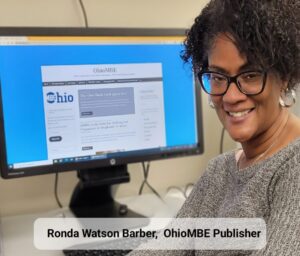
Ohio Legislative Black Caucus says state can do more to connect minority contractors to transportation construction jobs
State report reveals minority-owned businesses receive disproportionately low percentage of state highway contracts
COLUMBUS— State Rep. and President of the Ohio Legislative Black Caucus (OLBC) Alicia Reece (D-Cincinnati) recently called on the state to take action to reduce barriers between state highway contract opportunities and minority-owned businesses in Ohio. A “disparity study” released on April 15 by the Ohio Department of Transportation (ODOT) revealed that minority and women-owned businesses receive a disproportionately small percentage of the state highway contract opportunities available.
“Today’s news confirms what we already knew: that minority-owned businesses still face too many barriers – historic and systemic – to economic opportunities in this state,” said Reece. “It took over 30 years for the state to finally meet its Minority Business Enterprise benchmarks, and we cannot wait another 30 years to close the gap in connecting minority-owned businesses with highway construction contracts and jobs opportunities. The state can do more to create a fair and equitable environment for minority-owned businesses.”
Reece said the OLBC wants to see more the state do more state through increased diversity within the ODOT organization, greater access to capital and bonding for minority companies, a statewide urban apprenticeship and on-the-job training program, Minority Business Enterprise inclusion for ODOT projects, and an internship initiative with Ohio’s historically black colleges – Wilberforce University and Central State University.
Reece also said the OLBC is calling for a legislative halt to proposed local hiring bans, Senate Bill 152 and a House-passed companion version, which would prohibit communities from setting local workforce participation standards on infrastructure construction projects – a tool that has been used in urban cores with high-minority population density like Cleveland, Akron, Toledo and Cincinnati.
“We cannot have taxation without participation,” Reece added. “The bottom line is: we can be doing more.”
The ODOT state report showed that overall, minority- and women-owned businesses received only 14.2 percent of the relevant contracting dollars that ODOT awarded during the study period. Furthermore, African American-owned businesses fared especially poorly, receiving approximately only 31 cents for every dollar that they might be expected to receive based on their availability for the ODOT contracts awarded during the study period.
Increasing state contract opportunities for minority-owned businesses has long been at the top of the OLBC Action Agenda, and the organization has previously helped lobby to secure $800,000 in Ohio Department of Transportation workforce development grants, including $300,000 for the Greater Cincinnati Urban League’s highly successful Construction Connections program.
Here is a link to ODOT’s Disparity Study report: http://www.dot.state.oh.us/
